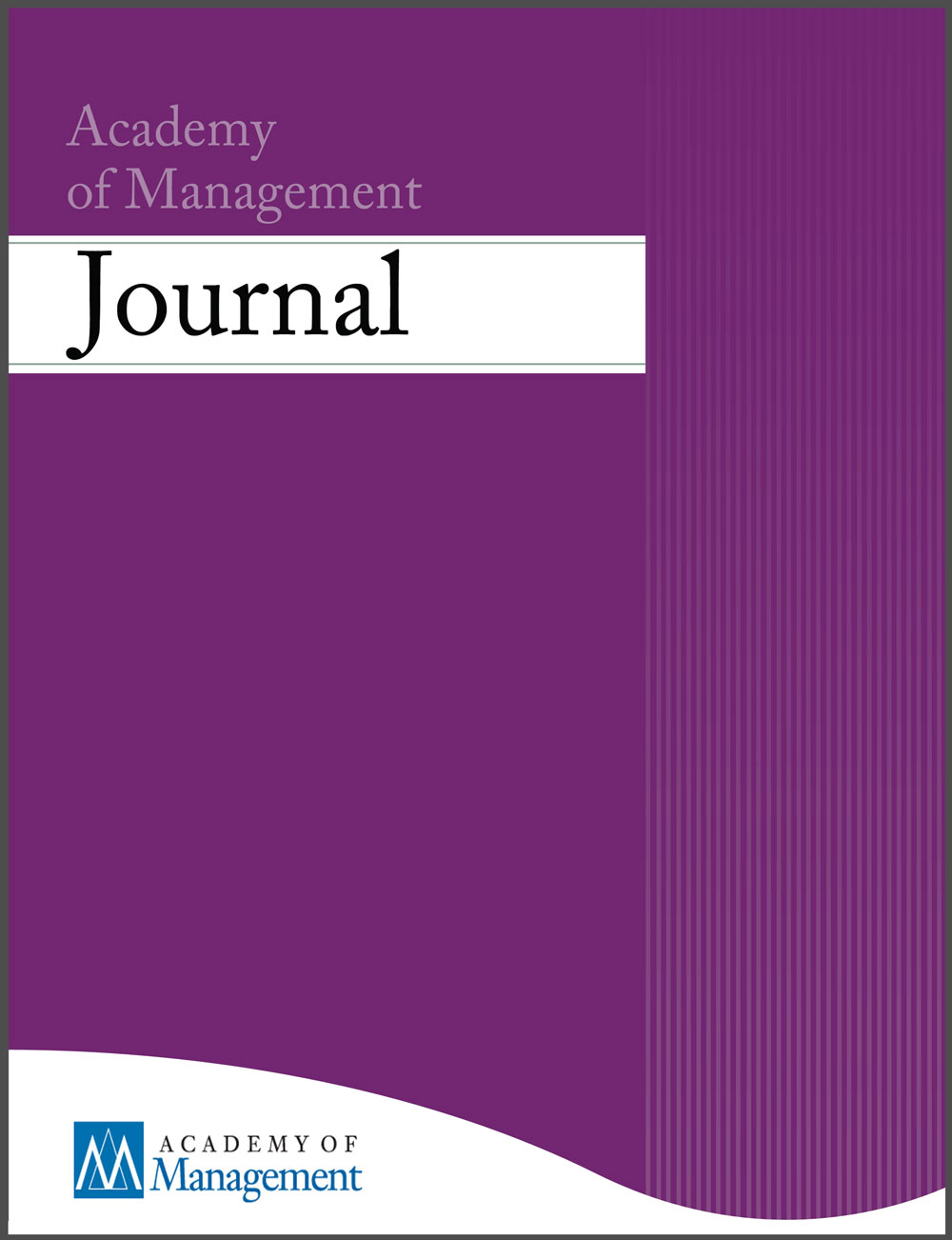虐待型首席执行官与慈善型企业社会责任对组织创新和绩效的交互影响
IF 10.5
1区 管理学
Q1 BUSINESS
引用次数: 0
摘要
我们研究了首席执行官(CEO)的滥用领导力如何以及何时会削弱高层管理团队(TMT)的行为整合,从而损害组织的创新和绩效。基于上层理论和相关的界面视角,我们在研究 1 中分析了来自 308 家中小企业(SMEs)的首席执行官和高层管理团队的横截面调查数据,在研究 2 中分析了来自 287 家中小企业的首席执行官和高层管理团队的多波多源调查数据。实证结果支持我们的理论。此外,首席执行官发起的慈善性企业社会责任(CSR)也会对这些效应产生调节作用,例如,当慈善性企业社会责任水平较高时,首席执行官的滥用领导力会对组织创新和绩效产生更实质性的负面间接影响。这种调节作用可归因于 TMT 成员对待遇不一致的负面感知的放大,即 CEO 对外部利益相关者有利,而对内部高管不利。首席执行官滥用领导力和慈善性企业社会责任对组织创新和绩效的综合影响为有关滥用领导力、战略领导力界面和上层理论的文献增添了新的内容。本文章由计算机程序翻译,如有差异,请以英文原文为准。
The Interactive Effects of Abusive CEOs and Philanthropic Corporate Social Responsibility on Organizational Innovation and Performance
We examine how and when chief executive officer (CEO) abusive leadership can undermine organizational innovation and performance by diminishing top management team (TMT) behavioral integration. Based on upper echelons theory and the related interface perspective, we analyzed cross-sectional survey data from CEOs and TMTs of 308 small and medium-sized enterprises (SMEs) in Study 1 and multi-wave multisource survey data from CEOs and TMTs of 287 SMEs in Study 2. The empirical results support our theory. In addition, these effects are moderated by philanthropic corporate social responsibility (CSR) initiated by CEOs, such that CEO abusive leadership has a more substantial negative indirect impact on organizational innovation and performance when the level of philanthropic CSR is elevated. This moderation is attributed to TMT members’ amplified negative perceptions of receiving inconsistent treatment, whereby the CEO treats external stakeholders favorably and internal executives poorly. The combined effects of CEO abusive leadership and philanthropic CSR on organizational innovation and performance add to the literature on abusive leadership, strategic leadership interfaces, and upper echelons theory.
求助全文
通过发布文献求助,成功后即可免费获取论文全文。
去求助
来源期刊

Academy of Management Journal
Multiple-
CiteScore
16.00
自引率
5.70%
发文量
99
期刊介绍:
The mission of the Academy of Management Journal (AMJ) is to disseminate empirical research that rigorously tests, extends, or constructs management theory while enhancing management practice. The journal welcomes diverse empirical methods, including qualitative, quantitative, field, laboratory, meta-analytic, and mixed methods. For publication in AMJ, research must exhibit robust empirical and theoretical contributions, with manuscripts emphasizing the practical relevance of these contributions to management practice. Authors are encouraged to craft original, insightful, interesting, and theoretically bold research that makes a substantial "value-added" contribution to the field's comprehension of a given issue or topic.
 求助内容:
求助内容: 应助结果提醒方式:
应助结果提醒方式:


